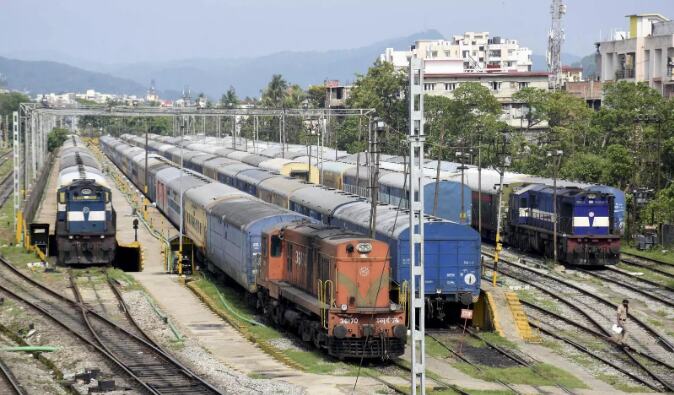Doing away with 'imperative'?

There could hardly be any doubt over the fact that the primacy accorded to environmental concerns in the discourse around development is highly appropriate. Any step towards development, which fails to take into account the environmental concerns, could safely be kept out of the realm of development as it will be inconsistent with the current trend of sustainable development. The Ministry of Railways' announcement of the closure of the Indian Railways Organisation for Alternate Fuels (IROAF) is slightly perplexing at this point in time. The step, evidently, is a shift away from India's objective of adopting alternative energy sources for the transportation system. IROAF was set up with the prime objective of promoting green energy through introducing and developing alternative sources of energy across the railway networks in India. The organization had been working on multiple projects including the development of solar power and hydrogen fuel cells. Just last month, the IROAF had invited bids for a specific project involving hydrogen fuel cell-based trains. Apart from hydrogen and solar projects for railways, the organization was also active in research and development programmes around other alternative green fuels like CNG. So basically, the organisation seemed to be following the right objectives — the objectives pronounced by the country's leadership. From the ramparts of Red Fort on August 15, Prime Minister had announced that Indian Railways has set a target of becoming a Net Zero Carbon Emitter by 2030. During his speech, the PM talked about 'giving a quantum jump to India in the field of climate change' in the form of 'green hydrogen'. He also announced the National Hydrogen Mission the same day. These promises are, as they may seem, very reassuring for a country that is already grappling with adverse impacts of climate change. IROAF was a step towards achieving these same goals. It is in this light that the railways current move has come to intrigue people. It will be important to see what alternative arrangement the government is ready with to take over the task of IROAF. Currently, their task has been transferred to Principal Electrical Engineer and Chief Administrative Officer of the Northern Railways. Given the size of Indian railway networks, changes made in its operations will have an impact of great magnitude. The railways will therefore need meticulous planning and foolproof arrangement while making any sort of transition. Both solar and hydrogen fuel are conceived to be a part of the future energy mix. While solar is gradually expanding its footprint across India, hydrogen fuel is in a very novice state but has huge potential. Green hydrogen is actually a costly affair at the present moment. Even for countries that receive ample sunlight around the year and can afford to invest a vast expanse of land, the cost, as per International Renewable Energy Agency (IREA), stands at around USD 1.5 per kilogram. But we need to understand that there is no alternative other than spending this cost. Green fuels are no more just 'alternatives' they are 'imperatives' — to be adopted gradually in due course of time, or what could be called a grace period. Further, the costs incurred at the initial stages will earn significant dividends many years down the line. The cost of establishment and research costs must be viewed as an investment and not a liability. Although there is a need to introduce and develop green fuels — solar energy and hydrogen energy in particular — across all sectors, Indian Railways stands a chance to lead by example on this front. It already has benchmark achievements on this front and more needs to be built upon. Such a course of action will not only have tangible benefits but will also serve as an inspiration for others to emulate. The credibility of Indian Railways invokes expectations of breakthrough initiatives on this front. Since IROAF is no longer in business, and its operational aspects and resources now rest with the railways, it will be interesting to see how it progresses from hereon. The core focus should be that the work done by IROAF to date is not lost. It has to be scaled further in a more efficient way, if there were efficiency issues earlier. Holding back is not at all an option.



